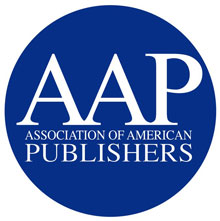August 31, 2023
US District Court Grants Preliminary Injunction Barring Implementation of Texas Censorship Law

Ruling Upholds Rights of Booksellers, Publishers, Authors, and Readers
During a status call held via Zoom today, Judge Alan D. Albright of the US District Court for the Western District of Texas, Austin Division indicated that he would issue a written order in one to two weeks granting a Preliminary Injunction barring the implementation of a new Texas censorship law in its entirety. In the interim, the state is enjoined from enforcement of any part of the law.
The law would have required independent bookstores, national chain bookstores, large online book retailers, book publishers and other vendors to review and rate millions of books and other library materials according to sexual content if those books are sold to school libraries, and to do so according to vague labels dictated by the state without any process for judicial review.
The ruling came in response to a suit filed by two Texas bookstores, Austin’s BookPeople, and West Houston’s Blue Willow Bookshop, together with the American Booksellers Association, the Association of American Publishers, the Authors Guild, and the Comic Book Legal Defense Fund.
The law, known as “The Reader Act” (formerly HB 900), was signed by the Governor of Texas, and had been slated to go into effect on September 1, 2023.
The following are joint remarks from Valerie Koehler, owner of Houston’s Blue Willow Bookshop, Charley Rejsek, the CEO of Austin, Texas-based bookstore, BookPeople, Allison K Hill, CEO of the American Booksellers Association; Maria A. Pallante, President and CEO of the Association of American Publishers; Mary Rasenberger, CEO of the Authors Guild; and Jeff Trexler, Interim Director of Comic Book Legal Defense Fund:
“We are grateful for the Court’s swift action in deciding to enjoin this law, in the process preserving the long-established rights of local communities to set their own standards; protecting the constitutionally protected speech of authors, booksellers, publishers and readers; preventing the state government from unlawfully compelling speech on the part of private citizens; and shielding Texas businesses from the imposition of impossibly onerous conditions. We look forward to reading the court’s full opinion once it is issued.”
